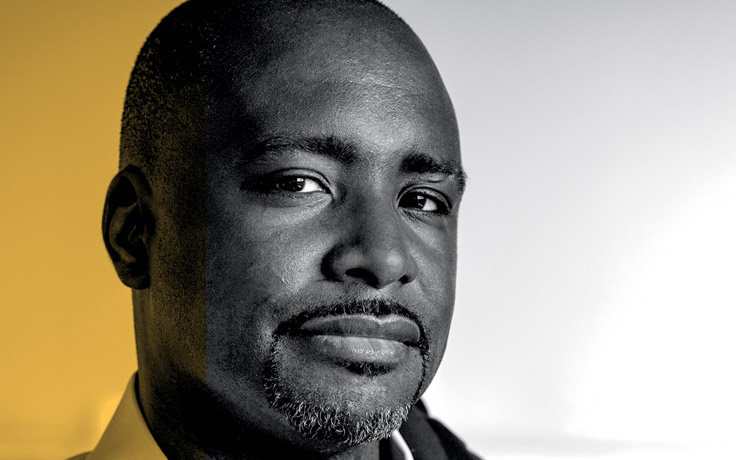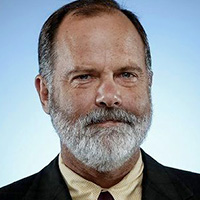As Los Angeles grapples with its place as a national leader in inequality, the Eighth City Council District is a source of particular concern. Once a hub of African-American culture, it is now roiled by demographic change. The jazz clubs on South Central Avenue are a distant memory, and the Eighth District has become home to many of the city’s poorest and most crime-ridden neighborhoods.
The district has its strengths. Commerce is brisk along Crenshaw Boulevard and Vermont Avenue. Baldwin Hills is prosperous. The Los Angeles Memorial Coliseum, just outside the district line, is a magnet for entertainment and tourism, and a new rail line promises to ease traffic and facilitate movement.
But the Eighth District also sweeps through threadbare neighborhoods along the edge of Watts. Twenty-two years after the acquittals of the Los Angeles Police Department officers who beat Rodney King triggered rioting that devastated a number of these communities, investors remain wary of bringing in new money. Areas that are bustling are still pocked by empty spaces.
For the past 12 years, responsibility for this district has rested with Councilman Bernard C. Parks, the former LAPD chief who ran for office after Mayor James K. Hahn refused to reappoint him to a second five-year term as the city’s top cop. Under Parks’ watch, the district showed signs of growth and prosperity. According to Parks, the Eighth is the only council district to emerge from the recession with six consecutive years of job growth.
Parks was termed out this year, and his replacement, Councilman Marqueece Harris- Dawson is, to put it mildly, quite different — a politician with a different style, different allies and even different looks. Parks feuded with
Supervisor Mark Ridley-Thomas; Harris-Dawson wrote a college paper about the supervisor. Parks is tall, lean and wry; Harris-Dawson is barrel-chested, softer spoken and quick to chuckle.
Most pointedly, Parks championed government frugality and antagonized organized labor, which spent heavily to defeat him in a county supervisor’s race against Ridley-Thomas. Harris-Dawson, by contrast, is an unabashed believer in government spending and a friend of labor, which backed him in his campaign for the City Council. “The investment in the Eighth District is public,” he told me recently. “MTA, the city, the school district. That’s real … Public sector jobs are what is going to happen.”
So different are the two that the Los Angeles Times referred to Harris-Dawson as “the anti- Parks,” although the newspaper managed to endorse both of them at different times. When Harris-Dawson was elected last March, the L.A. Weekly pronounced it a “lurch to the left” for a council that doesn’t have much room to its left. (It includes just one Republican, Mitch Englander. Moreover, Parks, tough as he is on spending, would be a liberal on most other city councils.) Lurch or not, there is no denying that Harris- Dawson brings a background likely to let him view issues of development, growth and inequality quite differently than Parks.
Old economy fades, new challenges emerge
Harris-Dawson grew up in Los Angeles, and his family story mirrors that of many African Americans who found their way to this city in the 20th century. Arriving from Louisiana, his grandfather landed a job with the Post Office, studied at USC and saved enough money to buy and rehab a few apartment buildings. And here he raised a family of his own, including Harris-Dawson’s father, who became a minister. When Harris-Dawson was a young boy, his parents, fearful of violence in local schools, moved to the San Gabriel Valley to raise their children in peace.
“That was the old economy,” Harris-Dawson said, when people could get a job with the government, work hard, save, invest and rely on a pension to carry them through old age. Rarely did anyone make a fortune, but government work supported a solid place in the middle class.
After graduating from high school, Harris- Dawson headed for Morehouse College in Atlanta and returned with a taste for activism: “I always thought of myself as an activist who needed a job.”
He landed at the Community Coalition. Founded in 1990, when South Los Angeles was under increasing stress from drugs and an aggressive and often hostile police force, the coalition brought together black and Latino activists determined to build safer neighborhoods and to demand attention from elected leaders. Karen Bass, a personable and driven organizer with a health background, was the group‘s animating force. She hired Harris-Dawson, and when she left to run for the California Assembly, become its first African American woman speaker and then campaign successfully for Congress, Harris-Dawson took her place.
At the Coalition, he fought to fund local schools and limit the number of liquor stores in poor neighborhoods. Running the Coalition, he said, gave him broader work experience: Now he was not only involved in community development but he was also responsible for a small, nonprofit business. He had to worry about pensions, supervising a staff, building for the future.
Under Harris-Dawson, the Coalition thrived, said Bass — the “doubling of the budget, the purchase of a new building, the renovation.” Indeed, she described the new headquarters as “symbolic of his leadership,” ambitious in scope, attentive to detail. Construction concluded earlier this summer, just in time for Harris-Dawson to move to City Hall and take up his new duties.
The Eighth District is at a juncture that is both symbolic and real.
Harris-Dawson and I met in a newish restaurant at the edge of the Baldwin Hills Crenshaw mall, and our lunch was a reminder of the new forces gathering around him. The restaurant, Post and Beam, is chic and elegant in a part of town not known, at least lately, for refinement and sophistication. As we talked, a lawyer from Bet Tzedek, an organization that offers free legal services to low-income residents, dropped by our table. So did a labor organizer. They had recognized Harris-Dawson, and they greeted him warmly, sharing ideas for projects and ambitions for South Los Angeles — ambitions that center on jobs and the role of government.
Ten days later, I was invited to a movie theater in the same mall. Supporters of Parks had gathered to wish the councilman well and take in a two-hour documentary about his life. The audience included former police officials, lawyer Gloria Allred and former councilman Richard Alatorre. The film highlighted Parks’ struggles with labor and his efforts to bring business and prosperity to the Eighth District. It was an affectionate and appreciative farewell — and decidedly a gathering of the old guard.
Indeed, the Baldwin Hills Crenshaw mall itself illustrates the duality of the district at this moment. It is bright, clean and safe. A train stop is being built, and it will bring growth. Numerous people hold jobs in these stores, which bustle with shoppers. Yet the mall tenants do not suggest bounty. They include a DB Shoes, a Footaction, a Foot Locker, a Kids Footlocker, a Payless ShoeSource, a Shoe City — in all, a dozen or so of the stores sell shoes, and they don’t specialize in Manolo Blahnik. There also is a Walmart, welcomed by shoppers in search of low prices but a bane of labor, which says it exploits workers. This is not the Beverly Center.
Parks worked hard to bring this district through recession. Harris-Dawson stands poised to take it from here.
A new approach
Where, then, will he take it?
Harris-Dawson considered that question between bites of gourmet pizza. He is a gentle listener, thoughtful enough to mull over a question before leaping to an answer yet new enough at politics to be occasionally impolitic. As he talked about the role of government in job creation, he at one point noted: “This is where I still have some faint hope in capitalism,” a sentiment not often uttered by more seasoned elected officials.
He is determined to elevate the Eighth District in citywide conversations about economic development, and he gently mocks more precious attempts at growth and neighborhood improvement. “Silicon Beach? Bike lanes?” he asked wryly. “That’s not our front burner.”
There is also a stubborn pride in Harris-Dawson’s approach to economic development. He’s tired of feeling that his part of town is peripheral to the life and health of the overall city. He wants the Eighth to be “in the middle” of the conversation about where Los Angeles is headed.
Still, he likes Mayor Eric Garcetti and was gratified when the mayor won approval for a city minimum wage, although Harris–Dawson complained that even after ramping up gradually from the state minimum of $9 an hour to $15, it will still be too low. Increases are better than nothing, he emphasized, but he would prefer sharp, quick increases instead of the modest, incremental ones approved by his new colleagues.
That is typical of Harris-Dawson: He welcomes progress, but he’s impatient for it and frustrated by those who are content to wait for change. Piecemeal solutions underwhelm him. He argues that Los Angeles does not do enough to take advantage of its economic size and strength.
The problems of the poor are present and immediate, he said. The Eighth District’s infrastructure is woebegone. Sidewalks need repair. The electric power grid needs upgrading. Harris-Dawson’s solution: “Rebuild it all.”
That would mean jobs, including jobs for city workers who lost positions during the recession, when a generous pay hike and a sudden crash in city revenue combined to leave Los Angeles in perilous fiscal shape. That time, Harris-Dawson argues, has passed, and this is the moment for Los Angeles to begin rehiring. Moreover, he wants the city to hire its own residents, an extension of the idea of “local hire” sometimes embedded in city contracts.
There is risk in that, of course. Mayor Antonio Villaraigosa came to regret lavish pay raises he approved for city workers, and Harris-Dawson may regret efforts to rebuild the municipal workforce if another downturn pinches city finances. For the moment, however, his focus is on his district and the need to put its people back to work.
On that point, he is blunt. “I don’t care who spends the money,” he said. “I just care that my people get it.”





















